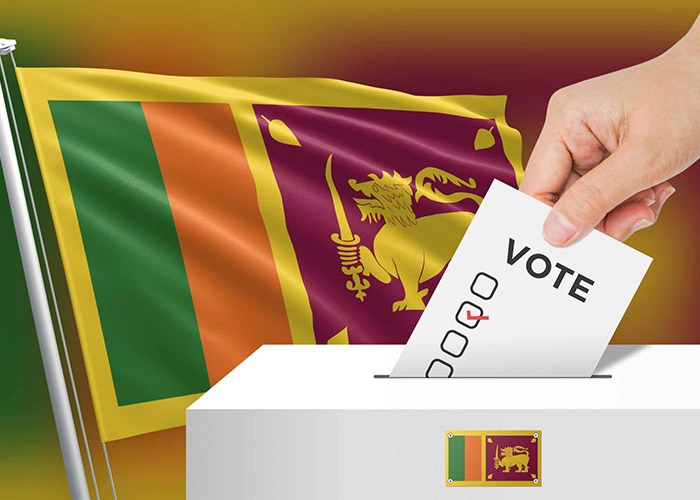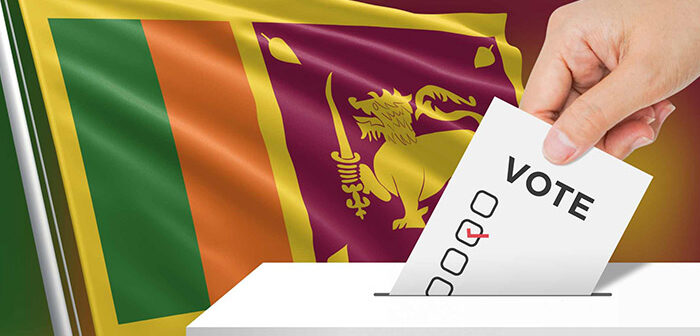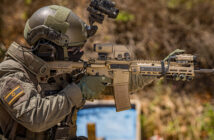
By Punsara Amarasinghe
Elitism, old-boy networks generated within the public schools and urbanism are the decadent values that the Sri Lankans gleefully inherited from the British, which continued to play a dominant role in the political space of the island along with the dynastic politics. However, the traditional Shakespearian aphorism “Some are born great”, which applied to many leaders who ruled Sri Lanka for the past 76 years reached its closure on the 21st of September.
By defeating then-president Ranil Wickremasinghe and the opposition leader Sajith Premadasa, the candidate from National People’s Power (NPP) Anura Kumara Dissanayake (AKD) became victorious. His main two opponents were formidable due to their political maturity, and elitist etiquettes and all those secondary merits were redundant when Anura Kumara Dissanayake was sworn in as the 9th executive President of Sri Lanka by securing close to 43% of the valid vote.
Beneath the charm that attracted the voters of the new generation, Dissanayake’s political ideology remains elusive. His hobnobbing with Marxism was not quite uncommon among youngsters in the 80 decade when Sri Lanka was in tatters by the emergence of the ethnic conflict followed by the rest of the troubles. Gutted by the socio-inequalities looming around Dissanayake may have turned to the popular leftist movement known as Janatha Vimukthi Peramuna (JVP) in the 80’s and it took nearly two decades for him to rise to its leadership in the year 2014. The party that Dissanayake leads, the JVP has a militant past as it was involved in two insurrections in Sri Lanka. Both insurrections were ruthlessly crushed by the governments in power by ending JVP’s liaison with the militant revolutions.
Anura Kumara Dissanyake’s rise to the presidency is not associated with the traditional Marxist-Leninist principles revered by the old school of JVP. Having seen the change of currents in the post-Cold War era, Dissanayake co-opted other fractions of the society in pursuit of political power. Dissanayake did not want to see the tragedy that befell other traditional Marxist parties in Sri Lanka to his one, thus his decision to alter the outlook of JVP eventually elevated him to the apogee of power.
When Dissnayake decided to form National People’s Power (NPP) in 2019, the country was on the verge of an economic limbo in the aftermath of the Easter Sunday bomb blasts and people remained hapless about the snobbishness of the political elites in Sri Lanka. The front that Dissanayake created in 2019 embodied different sects of the society from socialists to liberals, which could have been disdained by the founder of JVP, Mr. Rohana Wijeweera, if he remained alive from the purge of the late 80’s.
Sri Lanka’s traditional vote bank consisting of elderly citizens who ardently chose their leaders based on family dynasties, social image and caste was dwindling before the rise of new voters belonging to the millennial generation. The new generation of Sri Lankan voters deplored the socio-economic inequities they grappled with and embittered by seeing how few families continue to prosper in politics as a vocation.
The growing unrest among the youth in Sri Lanka and the appalled middle class was the gravitational centre that Dissanayake addressed carving his front called NPP, which gradually turned into a bulwark challenging the traditional political elites on the island. Yet, Dissanayake’s rise to power had to wait five more years since the inception of NPP, within five years Sri Lanka faced the worst economic crisis in its post-independent history. The economic crisis that hit the nation sealed the Sinhalese Buddhist chauvinistic rhetoric pervading the social landscape, which played a crucial role in bringing Gotabaya Rajapaksa to the presidency in 2019. The failure of Gotabaya to avert the crisis ousted him from power along with the ideology that brought him to the pedestal.
After Gotabaya was replaced by Ranil Wickremesinghe, his strict policy of increasing income and corporate taxes to address the financial policies of his predecessor displeased the masses. The NPP strongly criticized Wickremesinghe as a neoliberalist, accusing his economic policies of making the rich richer and leaving the poor behind. Their slogans against Wickremesinghe and his discussions with the IMF resonated with the people. Anura Kumara Dissanayake’s frequent criticism of the widespread corruption in the government and his commitment to eliminate it appealed to the majority, despite some uncertainty about his economic vision for Sri Lanka.
It is not erogenous to compare the emergence of Anura Kumara Dissanayake and NPP with the rise of SYRIZA, another left-wing political party that rose to prominence in debt-ridden Greece after its worst economic crisis in 2009. The SYRIZA contained striking parallels to NPP as it too was grounded on the leftist, centre-leftist and reformist fronts, which included some brilliant economists like Yanis Varoufakis, who took over the position of the finance minister of Greece in the new government.
Contrary to its initial success at an unprecedented level, the popularity of SYRIZA eclipsed in the following years due to the internal splits and the opposing trends that emanated within the Greek socio-political landscape. By all means, it is early to assume that the NPP led by Dissanayake and his leadership to Sri Lanka will follow the doomed path of the Greek episode as such conjuncture is irrational based on the two different contexts. But, the hefty task that awaits before newly elected president Dissanayake is a twisted one beyond the political mottos championed by him and NPP against the lumpen class in Sri Lanka.
What lies ahead of him is to accelerate the export sector in Sri Lanka, which would accumulate the foreign reserves for the island and navigate foreign relations at these times of trouble in global politics. If Dissanayake is wise enough as a leader, who is not obsessed with Marxist-Leninism, he would adhere to what Den Xiaoping once famously remarked “ It doesn’t matter whether a cat is black or white, as long as it catches the mice.”
(Punsara Amarasinghe is a post-doctoral researcher affiliated to the Institute of Law, Politics and Development at Scuola Superiore Sant Anna, Pisa. He is commentator on geo-strategy, defence issues to various platform and previously visiting scholar at University of Wisconsin Madison).






